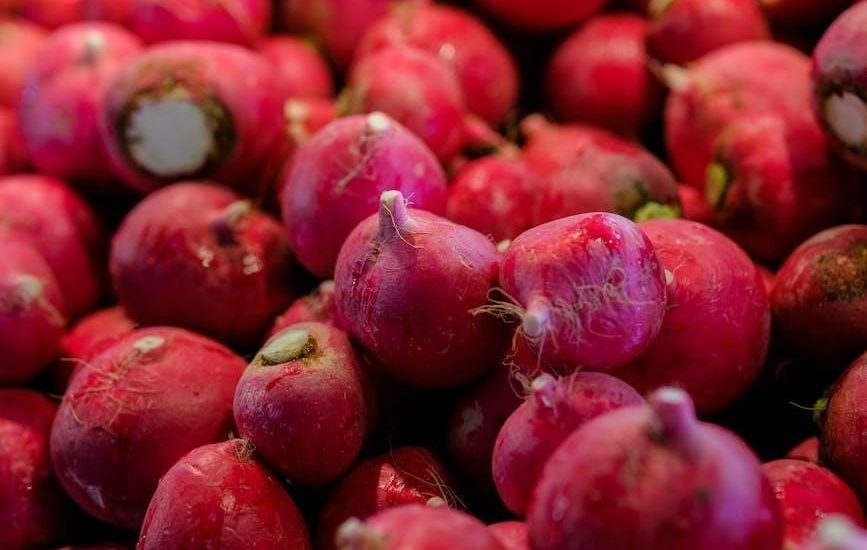A plant-based diet focuses on whole‚ minimally processed foods like fruits‚ vegetables‚ whole grains‚ and legumes‚ excluding animal products. It promotes health and sustainability while offering variety and flavor.
1.1 What is a Plant-Based Diet?
A plant-based diet emphasizes whole‚ minimally processed foods like fruits‚ vegetables‚ whole grains‚ beans‚ and legumes. It excludes animal products‚ focusing on natural‚ nutrient-rich options. This dietary approach promotes health‚ sustainability‚ and ethical eating. By centering meals around plant-derived ingredients‚ individuals can enjoy a variety of flavors while supporting overall well-being. The diet is versatile‚ catering to diverse preferences and lifestyles‚ making it accessible for those seeking a balanced and compassionate way of eating.
1.2 Benefits of a Plant-Based Diet
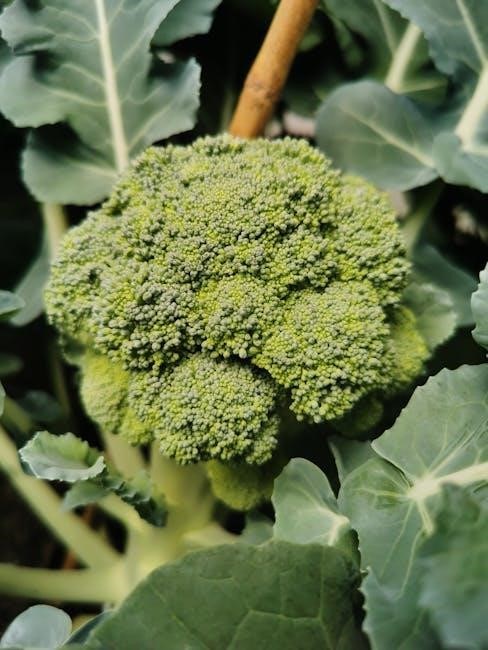
A plant-based diet offers numerous benefits‚ including improved health‚ environmental sustainability‚ and ethical eating. It reduces the risk of chronic diseases like heart disease and diabetes while promoting weight management. By focusing on whole‚ nutrient-dense foods‚ this diet supports immune function‚ digestion‚ and energy levels. Additionally‚ plant-based eating helps lower greenhouse gas emissions and supports animal welfare. Overall‚ it’s a balanced and compassionate choice that fosters well-being for individuals and the planet alike.
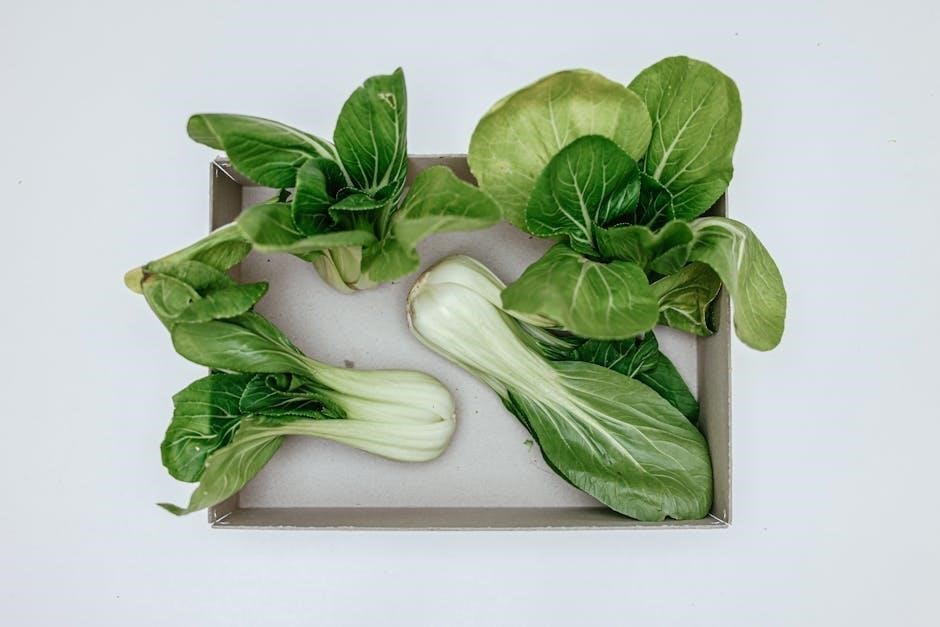
Essential Food Categories for a Plant-Based Diet
A plant-based diet revolves around fruits‚ vegetables‚ whole grains‚ beans‚ nuts‚ seeds‚ and plant-based dairy alternatives‚ ensuring a diverse and nutrient-rich eating plan for optimal health.
2.1 Fruits
Fruits are a vibrant and essential part of a plant-based diet‚ offering natural sweetness and a wealth of vitamins‚ minerals‚ and antioxidants. Popular choices include bananas‚ apples‚ berries (strawberries‚ blueberries‚ raspberries)‚ pears‚ and watermelon. These foods provide fiber‚ which supports digestion‚ and are rich in vitamins A and C‚ potassium‚ and phytonutrients that boost immunity and overall health. Incorporating a variety of fruits ensures a colorful and nutritious diet‚ making them a perfect addition to meals‚ snacks‚ or desserts. They are also versatile‚ suitable for smoothies‚ salads‚ or eating fresh.
2.2 Vegetables
Vegetables form the cornerstone of a plant-based diet‚ providing essential nutrients and versatility. Leafy greens like spinach‚ kale‚ and broccoli are rich in iron and vitamins‚ while colorful options such as bell peppers and carrots offer vitamin A. Cruciferous vegetables like cauliflower and Brussels sprouts support detoxification‚ and root vegetables like sweet potatoes and carrots add natural sweetness and fiber. Incorporating a wide variety ensures a balanced intake of minerals‚ antioxidants‚ and energy‚ making vegetables a fundamental component of every meal‚ whether raw‚ roasted‚ or steamed.
2.3 Whole Grains
Whole grains are a vital part of a plant-based diet‚ offering fiber‚ vitamins‚ and minerals. Options like brown rice‚ quinoa‚ and bulgur provide sustained energy and texture to meals. Incorporating whole grains such as barley‚ oats‚ and whole wheat ensures a balanced intake of nutrients like iron and B vitamins. They are versatile‚ suitable for salads‚ stir-fries‚ and as side dishes‚ making them a foundational element in a healthy‚ plant-based grocery list for everyday nutrition and culinary variety.
2.4 Beans and Legumes
Beans and legumes are nutrient-dense staples in a plant-based diet‚ rich in protein‚ fiber‚ and essential vitamins. Varieties like lentils‚ chickpeas‚ black beans‚ and kidney beans are versatile for soups‚ salads‚ and main dishes. They provide sustained energy and support digestive health. Incorporating legumes into meals enhances flavor and texture while offering a cost-effective‚ eco-friendly protein source. Adding them to your grocery list ensures a well-rounded and nutritious plant-based diet.
2.5 Nuts and Seeds
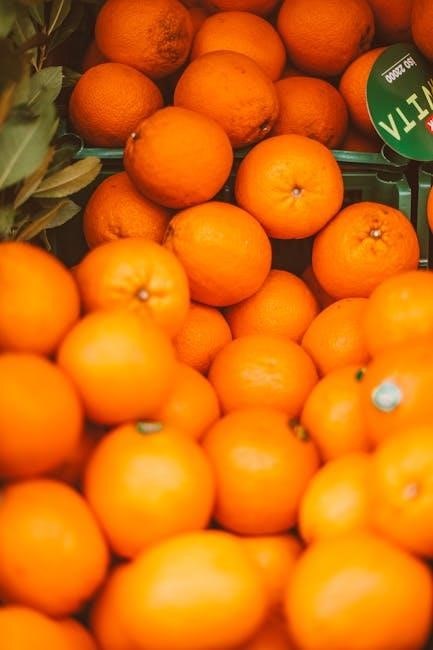
Nuts and seeds are rich in healthy fats‚ protein‚ and fiber‚ making them a valuable addition to a plant-based diet. Popular choices include almonds‚ walnuts‚ chia seeds‚ and flaxseeds. They provide essential nutrients like omega-3 fatty acids and vitamins‚ supporting heart health and brain function. Use them as snacks‚ in baking‚ or as toppings for salads and yogurt alternatives. Incorporating a variety ensures a balanced intake of nutrients and adds crunch to meals. They are also versatile in both sweet and savory recipes‚ enhancing flavor and texture.
2.6 Plant-Based Dairy Alternatives
Plant-based dairy alternatives are essential for those avoiding animal products. Options like almond‚ soy‚ oat‚ and rice milk provide creamy textures without dairy. Yogurt alternatives made from coconut or soy offer probiotic benefits‚ while vegan cheeses mimic the taste of traditional varieties. These products are versatile in smoothies‚ baking‚ and cooking‚ ensuring a dairy-free diet remains nutritious and flavorful. Always check labels to avoid added sugars and opt for fortified versions to maintain calcium and vitamin D intake‚ crucial for bone health and overall well-being.
High-Protein Foods for a Plant-Based Diet
Plant-based high-protein foods include tofu‚ lentils‚ chickpeas‚ beans‚ tempeh‚ seitan‚ edamame‚ and nuts. These options provide essential amino acids and nutrients‚ supporting muscle growth and overall health.
3.1 Tofu and Soy Products
Tofu‚ tempeh‚ and edamame are excellent high-protein soy products. Tofu is versatile‚ ranging from silky soft to extra firm‚ perfect for stir-fries‚ curries‚ and scrambles. Tempeh offers a nutty flavor and hearty texture‚ great for salads and sandwiches. Edamame is a tasty‚ protein-rich snack or addition to meals. Soy products are rich in iron‚ calcium‚ and isoflavones‚ supporting overall health. They are staples in a plant-based diet‚ providing essential nutrients and variety to dishes.
3.2 Lentils and Chickpeas
Lentils and chickpeas are powerhouse legumes‚ packed with protein and fiber. Lentils are perfect for soups‚ stews‚ and curries‚ while chickpeas add texture to salads and hummus. Both are versatile‚ nutritious‚ and easy to incorporate into meals‚ making them essential for a plant-based diet. They provide sustained energy‚ support digestion‚ and are rich in essential nutrients like iron and zinc. Including these in your grocery list ensures a variety of delicious‚ protein-rich dishes.
3.3 Nuts and Seeds as Protein Sources
Nuts and seeds are excellent protein sources in a plant-based diet. Almonds‚ chia seeds‚ and flaxseeds are rich in protein and nutrients. They add crunch and flavor to meals‚ making them versatile for snacks‚ salads‚ and smoothies. Incorporating nuts and seeds enhances protein intake and provides healthy fats‚ supporting overall health and energy levels. They are convenient and nutrient-dense options for plant-based eaters‚ ensuring a balanced and satisfying diet.
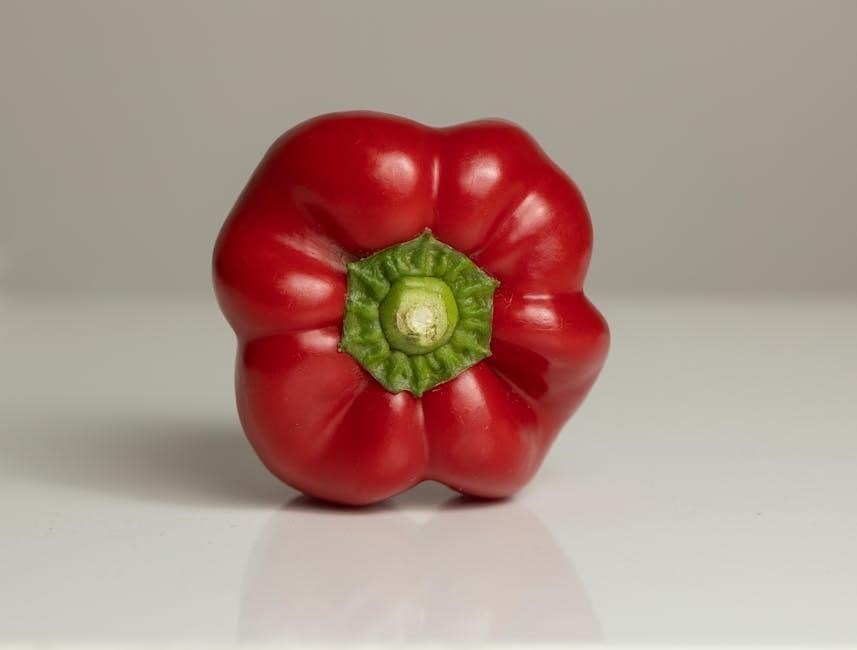
Healthy Fats in a Plant-Based Diet
Avocados‚ nuts‚ seeds‚ and plant-based oils provide essential healthy fats. They support heart health‚ satisfy hunger‚ and enhance nutrient absorption‚ making them vital in a balanced diet.
4.1 Avocados
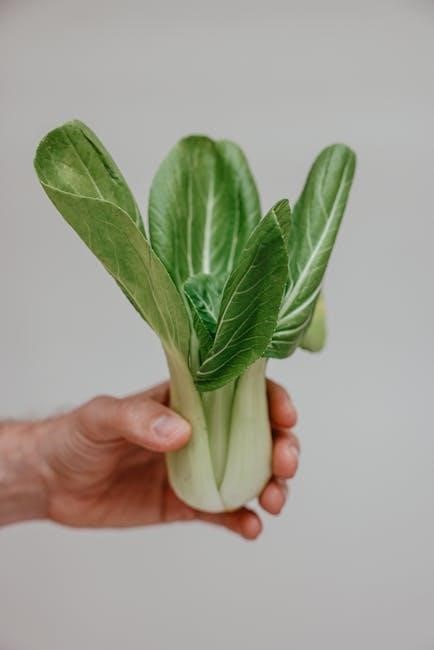
Avocados are a rich source of healthy fats‚ particularly monounsaturated fats‚ which support heart health. They are versatile‚ adding creaminess to dishes like salads and sandwiches. Avocados also provide essential vitamins and minerals such as potassium and vitamin C. Incorporating avocados into your plant-based diet can enhance nutrient absorption and keep you feeling full. They are widely available in most grocery stores and are a great addition to any meal. Avocados are a nutrient-dense food that contributes to overall well-being and can be easily included in a variety of recipes.
4.2 Olive Oil and Other Plant-Based Oils
Olive oil is a staple in plant-based diets‚ offering healthy fats and antioxidants. Other plant-based oils like coconut‚ avocado‚ and grapeseed provide versatility for cooking and dressings. Olive oil is ideal for low-heat cooking and enhancing flavors in Mediterranean dishes. Avocado oil‚ with its high smoke point‚ is great for frying‚ while sesame oil adds a distinct taste to Asian-inspired recipes. These oils are calorie-dense‚ so moderation is key. Always opt for cold-pressed‚ unrefined options to maximize nutritional benefits. Use them sparingly to enhance meals without overloading on fats.
Pantry Staples for a Plant-Based Diet
Stock your pantry with whole grains‚ beans‚ lentils‚ and spices. Canned goods like chickpeas and tomatoes are essential. These staples form the foundation of flavorful‚ nutritious plant-based meals.
5.1 Spices and Herbs
Spices and herbs are essential for adding flavor to plant-based dishes. Common staples include basil‚ oregano‚ cumin‚ turmeric‚ and black pepper. Herbs like cilantro‚ parsley‚ and chives add freshness. Spices such as chili flakes‚ paprika‚ and garlic powder enhance depth. These ingredients not only elevate meals but also provide antioxidants and health benefits. Experimenting with global spice blends‚ like curry or Italian seasoning‚ can add variety to your recipes. Keep them organized and within reach to inspire creativity in your cooking.
5.2 Canned Goods
Canned goods are versatile and convenient for plant-based diets. Stock up on beans like black beans‚ chickpeas‚ and kidney beans for protein-rich meals. Canned tomatoes and coconut milk are great for sauces and curries. Look for low-sodium options to control salt intake. Artichokes‚ corn‚ and jackfruit also add variety to dishes. Always check labels for added sugars or preservatives. These staples are budget-friendly and have long shelf lives‚ making them perfect for meal prep and emergency supplies.
Tips for Meal Planning and Grocery Shopping
Plan weekly meals to avoid waste and save time. Create a budget-friendly grocery list‚ focusing on seasonal produce and pantry staples for efficient shopping.
6.1 Weekly Meal Planning
Weekly meal planning is essential for maintaining a consistent plant-based diet. Start by listing your favorite meals and scheduling them across the week. Include a variety of dishes to ensure diversity in nutrients and flavors. Consider breakfast‚ lunch‚ snacks‚ and dinner options‚ incorporating fruits‚ vegetables‚ whole grains‚ and legumes. Plan meals around seasonal produce for freshness and cost-effectiveness. Make a corresponding grocery list to avoid impulse purchases and reduce food waste. Preparing meals in advance can also save time and keep you on track with your dietary goals.
6.2 Budget-Friendly Grocery Tips
Adopting a plant-based diet can be cost-effective with smart grocery strategies. Plan meals in advance and create a shopping list to avoid impulse purchases. Buy in bulk for staples like beans‚ grains‚ and nuts‚ as they are often cheaper in larger quantities. Opt for seasonal fruits and vegetables‚ which are typically more affordable and fresher. Consider whole foods over processed alternatives‚ as they tend to be more budget-friendly. Incorporate affordable protein sources like lentils and chickpeas into meals. Shop for store-brand or generic options‚ and plan meals around items on sale to maximize savings.

Printable Plant-Based Grocery List
A comprehensive plant-based grocery list includes fruits‚ vegetables‚ whole grains‚ beans‚ nuts‚ seeds‚ and dairy alternatives. Download a PDF for easy meal planning and shopping convenience.
7.1 Sample Shopping List
A well-organized plant-based grocery list ensures you have all essentials for delicious‚ nutritious meals. Start with fresh produce like apples‚ bananas‚ berries‚ leafy greens‚ and cruciferous vegetables. Include whole grains such as brown rice‚ quinoa‚ and whole-grain bread. Add beans and legumes like lentils‚ chickpeas‚ and black beans for protein. Nuts and seeds‚ including almonds‚ chia seeds‚ and flaxseeds‚ provide healthy fats. Don’t forget plant-based dairy alternatives like almond milk and tofu. Seasonings‚ spices‚ and herbs like turmeric‚ cumin‚ and basil enhance flavors. For convenience‚ stock up on canned goods like tomatoes and corn. This list serves as a foundation‚ allowing you to customize based on preferences and recipe needs.
7.2 Customizing Your List
Customizing your plant-based grocery list allows you to tailor it to your dietary needs‚ preferences‚ and budget. Consider your lifestyle‚ cooking habits‚ and favorite recipes when adjusting the items. For example‚ add more nuts and seeds if you prefer snacks‚ or include extra spices for flavorful meals. You can also prioritize seasonal fruits and vegetables for freshness and cost-effectiveness. Don’t forget to incorporate personal favorites and experiment with new foods to keep your diet exciting and varied over time.
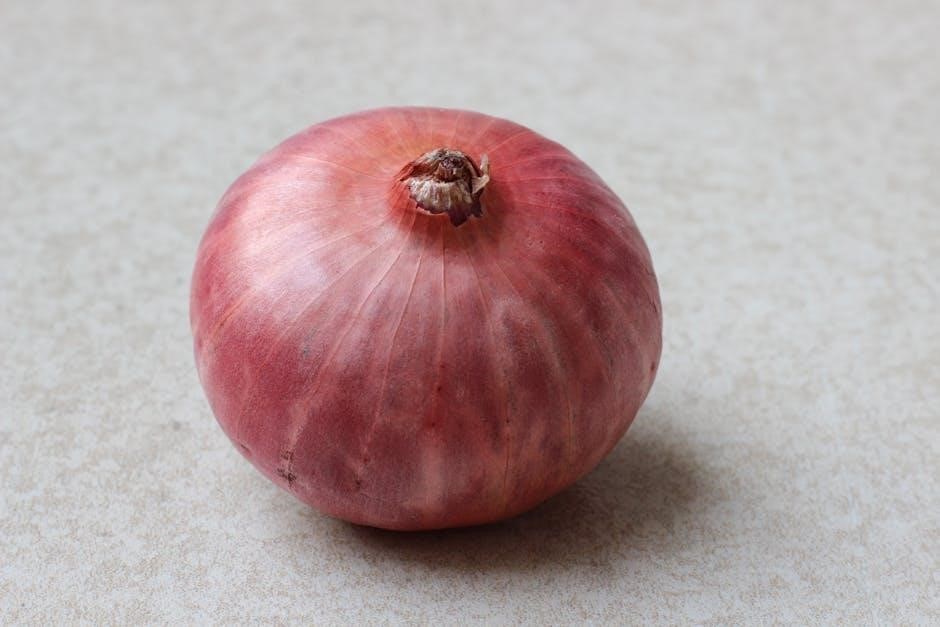
Common Nutritional Considerations
A plant-based diet requires attention to key nutrients like protein‚ iron‚ and B12. Ensure a balanced intake by incorporating a variety of whole foods and supplements if needed.
8.1 Key Nutrients to Focus On
When following a plant-based diet‚ it’s essential to prioritize key nutrients. Protein can be sourced from legumes‚ beans‚ and tofu. Iron is abundant in spinach‚ lentils‚ and chickpeas‚ while calcium can be found in fortified plant milks and leafy greens. Vitamin B12‚ crucial for brain function‚ is typically obtained through supplements or fortified foods. Additionally‚ omega-3 fatty acids from flaxseeds and walnuts support heart health. Ensure a balanced intake to maintain optimal nutrition and energy levels throughout the day.
8.2 Avoiding Nutritional Deficiencies
To avoid deficiencies on a plant-based diet‚ ensure adequate intake of Vitamin B12 through supplements or fortified foods like plant milks. Iron deficiency can be prevented by consuming leafy greens‚ lentils‚ and chickpeas‚ paired with vitamin C-rich foods for better absorption. Calcium needs are met with fortified dairy alternatives and kale. Omega-3 fatty acids from flaxseeds and walnuts support brain and heart health. Regularly checking nutrient levels and consulting a healthcare provider can help maintain a balanced and nutritious diet.
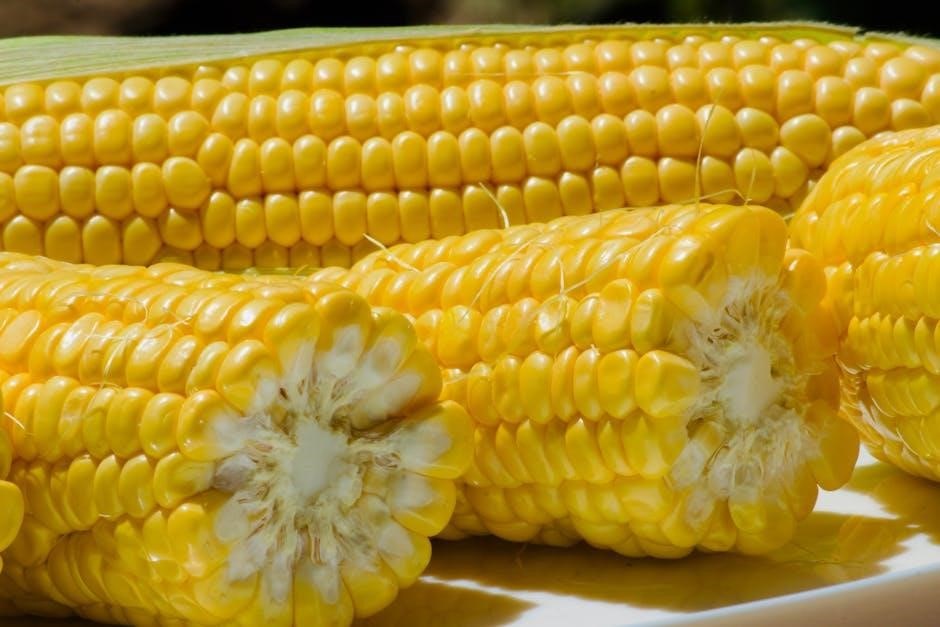
Embracing a plant-based diet offers numerous health benefits and supports sustainability. Utilize grocery lists and guides to ease your transition and enjoy a balanced‚ nutritious lifestyle. Start your journey today!
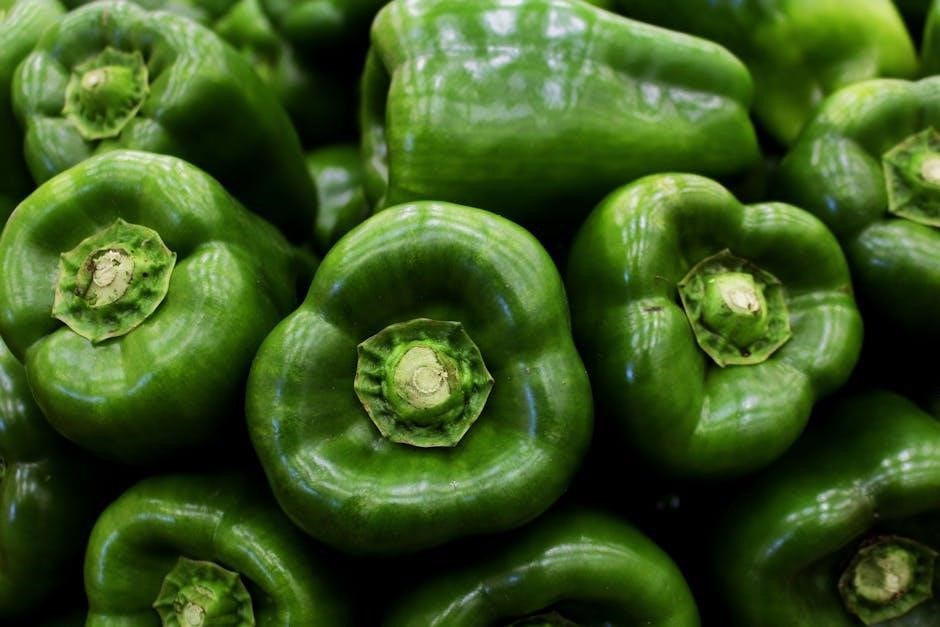
9.1 Final Tips for Success
Plan meals weekly and keep a well-stocked pantry with staples like grains‚ beans‚ and spices. Experiment with new recipes and flavors to maintain variety. Stay organized with a grocery list to avoid unnecessary purchases. Don’t hesitate to seek inspiration from cookbooks or online resources. Consistency is key‚ so start small and gradually incorporate more plant-based options. Celebrate progress and enjoy the journey toward a healthier‚ sustainable lifestyle with confidence and patience. Staying informed and motivated will ensure long-term success on your plant-based path.
9.2 Resources for Further Learning
Explore reputable websites like Forks Over Knives and Oh She Glows for recipe inspiration and guides. Check out books like The Full Helping and The Plant Paradox for in-depth insights. Join online communities such as Plant-Based Diet Facebook Groups to connect with others. Download apps like HappyCow for recipe ideas and nutrition tracking tools. Visit Plant-Based Grocery List PDF resources for organized shopping guides. These resources will help you expand your knowledge and confidently navigate your plant-based journey with ease and enthusiasm.

